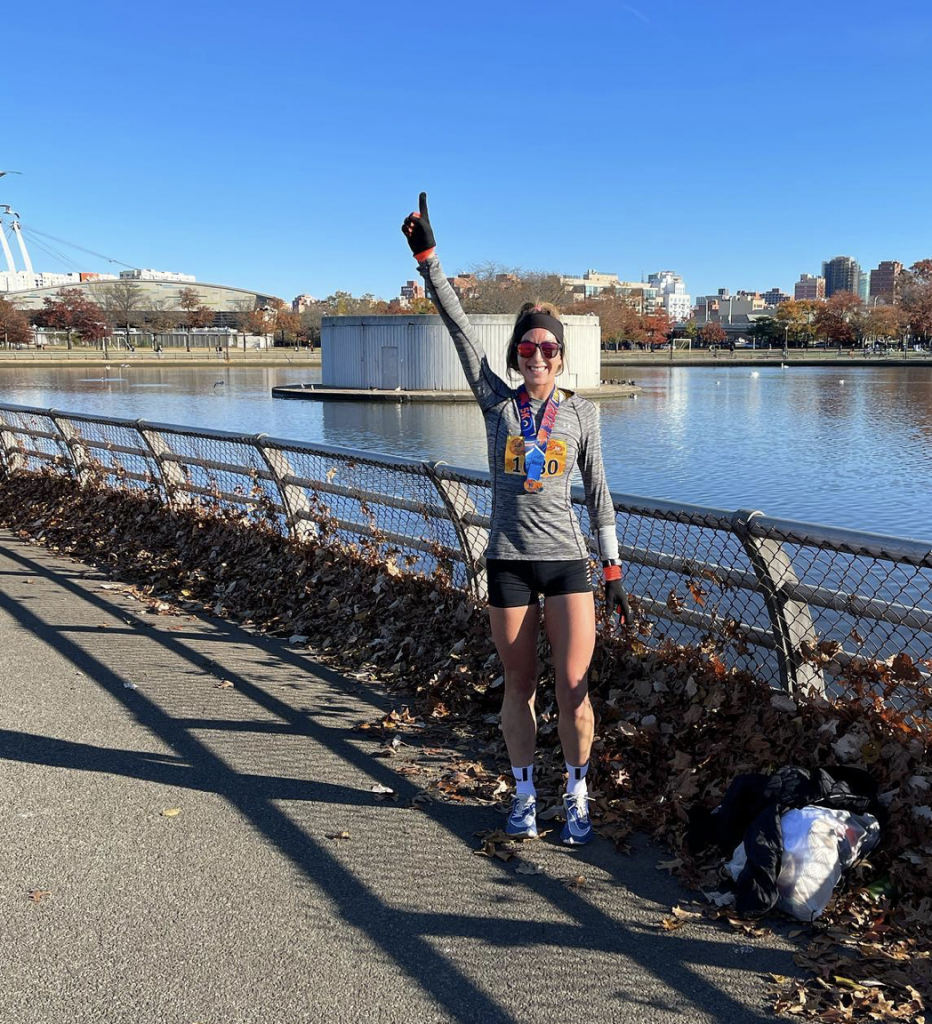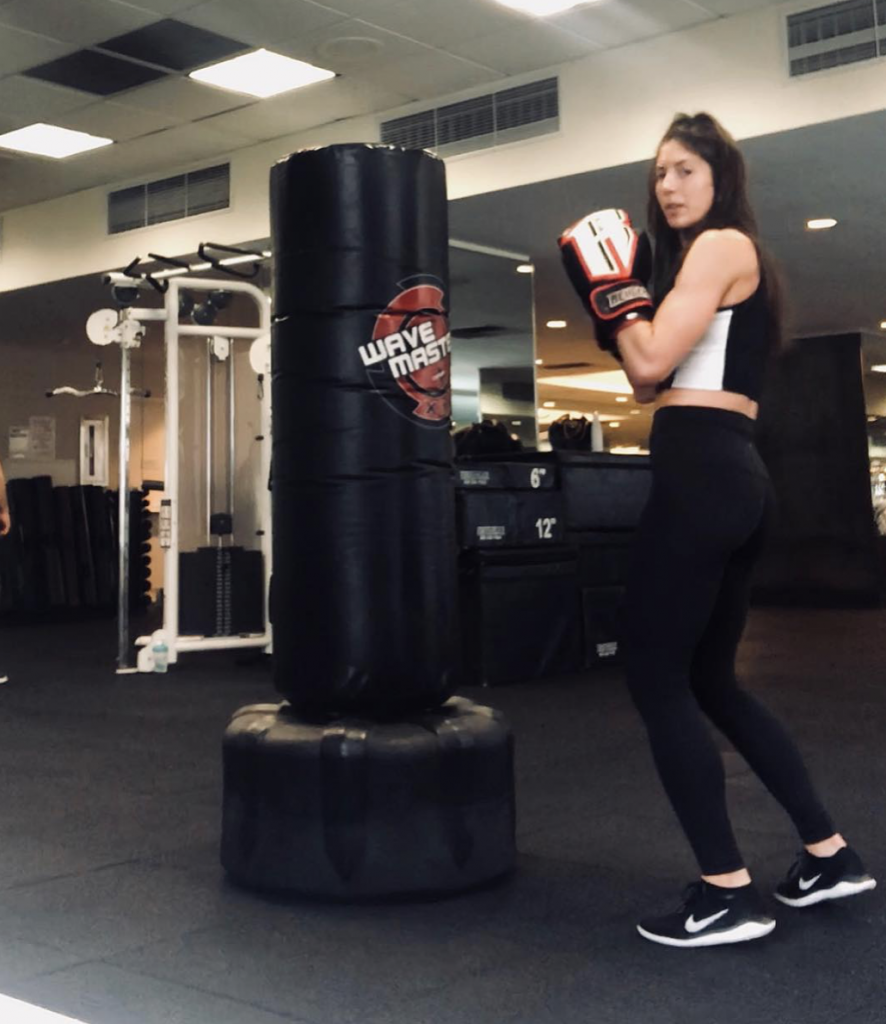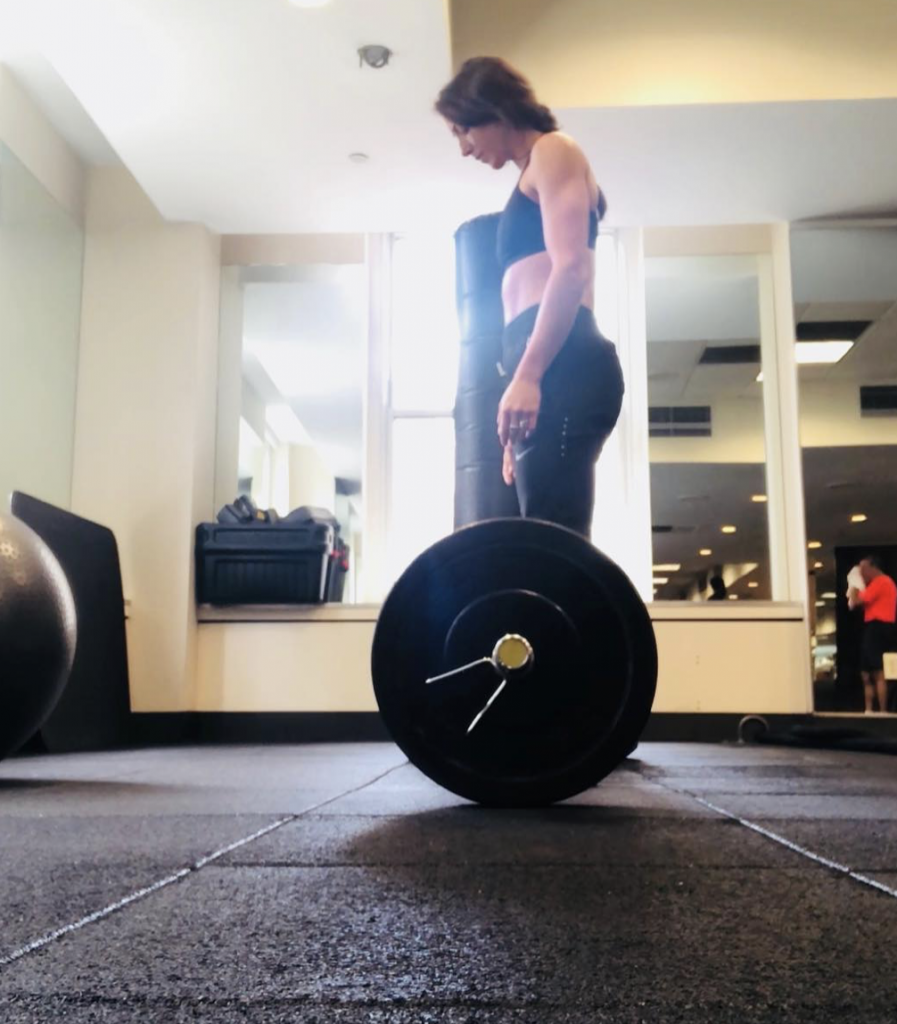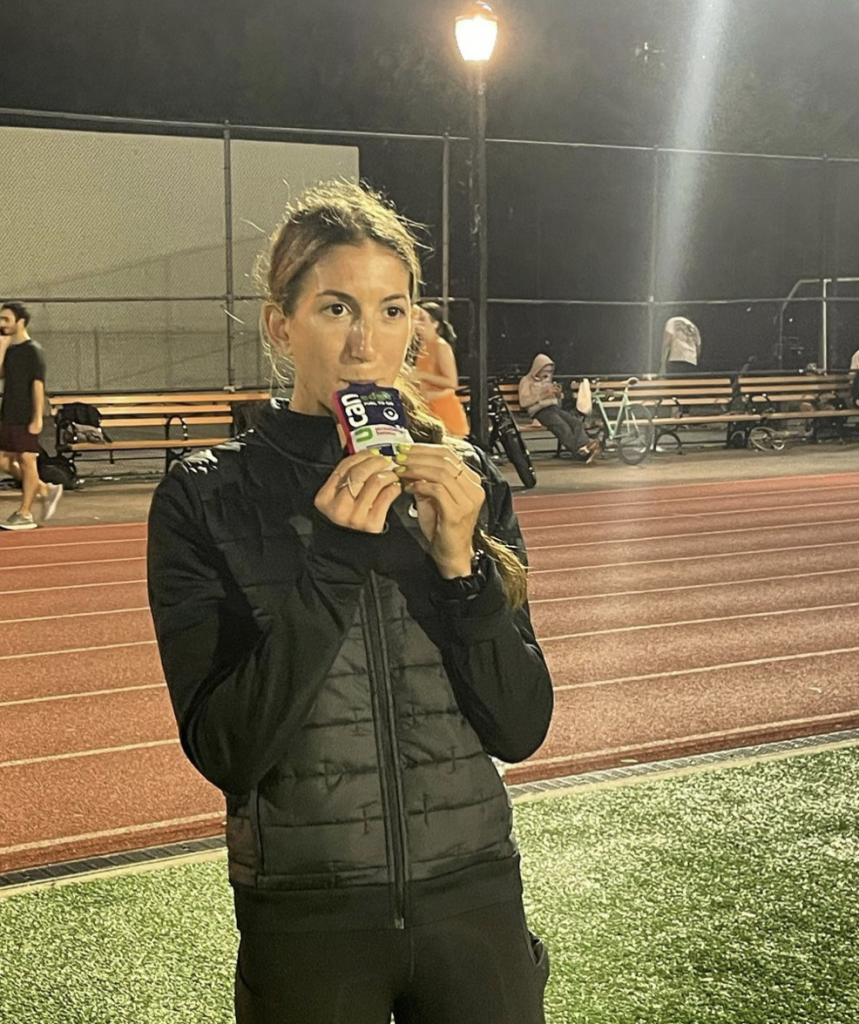Keep your training fun with a variety of exercises tailored to meet you where you are in your fitness journey.
The foundation of the Runwithalli® Coaching Methodology comes from my personal experiences with running marathons, both breakthroughs, and setbacks, including one horrific injury. In addition to my UESCA certification and being coached by Dr. Jason Karp, formerly coached by Jack Daniels, I’ve had the resources to help guide me to my personal best, and the fun is only getting started.

Through these experiences, I taught myself how to persevere, never give up, and find ways around being injured to gain fitness when I couldn’t run. I strive to help other like-minded individuals find running as a gift. I hope to help others learn how to love the training while attaining their own running goals. I strive to help others find the drive and motivation to run and live healthier lives through the sport.

The Backdrop
A little backstory about me: in 2015, I ran my first marathon and finished The TCS 2015 NYC Marathon. After my first race, I did three sequential marathons: the Los Angeles Marathon in Feb 2016. San Diego Marathon in June 2016. And the Boston Marathon in April 2017. I PR’d in my first three marathons by 14 minutes (3:48, 3:35, and 3:21 respectively) by incorporating some structure, Fartlek training, cross-training, and easy running. My long runs were shorter than 18 miles for these first three marathons. Just an FYI!
I didn’t want to injure myself to the best of my ability. I understood that building up your longest run’s mileage year over year is how every marathon runner can endure those miles without getting injured. Suppose their body allows them to, that is. Also, I learned that along with training, nutrition and recovery programming are just as crucial while training for 26.2.
After my first Boston marathon, I struggled with body dysmorphia. After moving into the fitness industry after six years of being a corporate pro, I worked with imposter syndrome, significant anxiety, repeatedly falling into the comparison trap, and not finding time to focus on myself. Through the lack of self-care and recovery, I developed poor eating habits after running Boston for the first time, and I ran myself into an injury. At the time, I was too stubborn to admit it, and it got worse and worse to the point I was sidelined from running for 1.5 years. Today, I am stronger physically and mentally from experience, and I can help others not make similar mistakes that I did. I didn’t have anyone at the time to tell me not to do it! We live, we learn.
I let the injury linger on while working at Equinox, training 8-10 clients daily 5days/week, and trying to hide my injury. If I had pulled back on running much earlier than I did, things wouldn’t have been as bad as forcing me to pull out of the 2018 Boston marathon.
I had a quad strain and piriformis syndrome in my right leg. I struggled walking and tried to hide the fact I was limping. Mentally, I wasn’t in a great place and struggled to find new methods and ways to keep myself sane while working at Equinox based in Rockefeller Center.
Even though I only wanted to go for a run, I didn’t. I kept my head up and kept an open mind to learn new things because I had to. Now, I can help others guide themselves to their next 26.2, as I’ve mentioned, like you, without going through as many mishaps as I’ve experienced.

Lessons Learned
- Listen to your body.
- Accept what’s going on.
- Don’t ignore pain.
- Pull back if something is hurting.
I learned the above a little too late.
Now, I’m pretty diligent with my athletes about doing all of these things listed above properly. I remind my athletes that it’s important to stay present, but also think of the long-term goal when things don’t feel right. And it happens! We are all human.
My ‘why’ for helping others as you train for 26.2 is to help you cross your marathon finish line feeling strong, confident, and injury-free, unlike I once did. There’s a silver lining to our mistakes!
With the talent around me at Equinox at the time, I found myself learning new ways to train my body correctly daily through expert education and trainers around me constantly. I am forever grateful to each of you!

I picked apart everyone’s brain as much as I could because I needed the help, expertise, and guidance to help me find ways to keep me physically fit, mentally healthy, and able to move my body daily. From expert top industry trainers to DPTs in and outside of Equinox (shoutout Prehab) and so many other runners in the community along the way, I learned, absorbed, and started creating my strength training for runners program and a cross-training method while I was injured.
Now, I tailor those exercises to the athletes that I coach! I can’t wait to create a more extensive guide for the masses of injured runners struggling to stay sane, fit, and embrace the process.
Just know this: every journey has its ups and downs. The downs make you appreciate running THAT much more. Please write it down. Don’t forget it!
My Cross-Training Method Created Variety In My Marathon Programming
I found a love for cross-training, boxing in particular for my cardio. It’s low impact on the legs for the most part, but super bada$$ and high-intensity just about everywhere else. To say boxing got me fit was an understatement!

Additionally, I learned how to lift heavy and use all of the weights and equipment in the gym as a trainer.

I still train several of my clients towards their personal weight loss goals and general health and fitness goals. However, now, I’m better equipped with the knowledge, more innovative methods, and a training methodology that allows me to help individuals like you run a faster marathon with personalized coaching and holistic training.
How To Train For A Marathon The Smart Way
I believe in taking a chunk of the year to focus on speed, strength, and power through cross-training, lower mileage, shorter and quick intervals, and heavy lifting. Training your body for a marathon year-round doesn’t mean explicitly training yourself for your #1 competition race. It means keeping your body in a system year over year to run stronger progressively, smart, and faster year after year.
If you’re training to run a faster marathon and want to run year-round, I promise you that you will get fitter with variety in your training program and structured training blocks with a different focus throughout the year.
Consistent, Structured Training Will Allow You To Run Stronger For Life
Year over year, consistently building your body to be strong and more resilient will help you run a faster marathon.
I started with the marathon distance and worked my way backward. When I did, I felt stronger in my training; I’ve been injury-free since then, and I shaved 19—minutes off of my personal best time in the marathon distance. What works for me exactly may not work for you, but what will work is structure and periodized training so you can run healthy and strong for life.
Run A Faster Marathon With Varied Training! Here’s How & Where I Included Variety In My Build-up
If I can do it, so can you! Here’s what I did:
Five months: I focused on my strength, speed, and power through strength training with heavy weights, plyometric exercises, and structured interval workouts. Shorter intervals to work on my speed: 200s, 300s, 400s, all anaerobic. I didn’t run anything over 25 miles a week to work on my essential speed and my speed endurance. I went from a 23-minute 5K to a 19-minute 5K.
Seven months: I focused on my aerobic base training, slowly increasing the overall weekly mileage and moving into longer intervals progressively week over week, month over month. This type of training helped to improve the pace I could hold for a sustained period. This training, coupled with the five months of strength training and interval training on the track, boosted my stamina and helped me endure a faster pace.
In a year, I went from a 03:21 marathon to a 03:02 marathon with proper, personalized training.
This approach goes hand-in-hand with stronger, smarter, and strategic training. I didn’t do it alone. Every coach needs a coach!
Why Do This?
Reasons to incorporate variety into your marathon training program are listed below:
Prevent injuries
Make your Marathon Pace Feel Easy
Improve Your Running Technique to Run Farther, Faster
Become A Well-Rounded, Stronger Runner with Proper Training, Nutrition, and Recovery. UCAN is my go-to marathon fuel. I love their pea protein powder to facilitate quicker recovery after quality workouts and long runs! I recommend the edge in both flavors (orange and strawberry-banana) for fueling throughout your half marathon and any marathon. The SuperStarch® proprietary carbohydrate steadily maintains your blood sugar and glucose levels as taken throughout your runs. Hence, you never hit “the dreaded wall.” Check UCAN products out using my affiliate link right here! Save yourself 20% upon check out!

Improve Your Resilience, and Your Mental Toughness
Enhance Your Fitness, Making Your Long Runs Longer Year over Year
Feel and See Your Fitness Gains During Your Training and Your Races
Enjoy The Longevity Of The Sport
Eliminate Stress, Anxiety, and Depression by Creating a Healthier Body and Mind
Keep Your Training Fun with a Variety of Exercises Tailored to Meet You Where You Are In Your Fitness Journey
Final Thoughts
The results from my athletes are telling. Each athlete I’ve coached (to date) has achieved their running goal(s) through tailored, personalized coaching that meets their running goals and needs.

There have been many inspiring Runwithalli® Coaching success stories. These include coaching individuals running a mile for the first time without stopping to walk to individuals working towards getting to the start and finish line injury-free to individuals striving to qualify for Boston using a run/walk pacing strategy. You can check out my website and what my athletes are saying!
If you need training guidance, please reach out to me here! I’d love to learn more about your running and fitness goals! Let’s get ’em!
